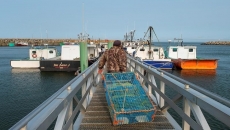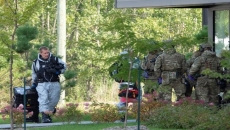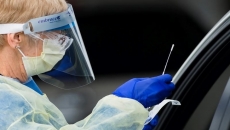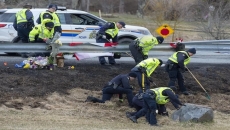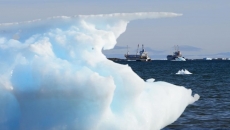A cross-partisan effort by MPs to be united in a call for the Liberal government to increase foreign aid spending on the humanitarian crisis created by the global pandemic devolved quickly into partisan bickering Thursday.
But the members of the House of Commons foreign affairs committee insisted they are on the same page in believing that without increased efforts, and a leading role by Canada, the pandemic's effect on the developing world will be profound and long-lasting.
"If Canada fails to work with donor countries, for the global good, millions more people will unnecessarily die," said NDP MP Heather McPherson.
"Dangerous variants will increase, threatening Canadians and our global economic recovery. And this will take years if not decades to correct."
The committee made 10 recommendations aimed at bolstering Canada's role, including a call for more foreign aid funding, both in money directly for pandemic response but also to Canada's overall overseas development budget.
That state of that budget was one of many points that saw MPs drop their unified front and toss barbs at each other Thursday in a news conference discussing the report, primarily in the form of Liberal and Conservative MPs each accusing the each other's governments or parties of slashing aid spending.
Conservative foreign affairs critic Michael Chong noted humanitarian groups say all the progress made in improving poverty levels around the world is at risk of being undone by the pandemic.
"In that context, the government's failure to deliver foreign aid at the levels that were in place previously, it has real consequences," he said.
That aid, MPs agreed, has to come simultaneously with increased efforts to increase vaccine availability and affordability around the world.
Canada has already contributed around $940 million toward vaccines in lower-income countries, but has also drawn criticism for accessing vaccines through one of those programs, known as COVAX.
The Liberals have defended that decision on the grounds the program was designed to encourage countries to contribute funds so they could not just help lower-income nations but access vaccines for their citizens too.
"Had it not been for Canada's support, Canada's contributions, we would not see the distribution of what is going to be over two billion vaccines being given to lower-income countries," said Liberal MP Ruby Sahota.
One year ago, @WHO declared the COVID-19 outbreak a pandemic, forever changing the course of our lives.
— Ruby Sahota (@rubysahotalib) March 11, 2021
On the National Day of Observance for COVID-19, we remember the victims of COVID-19, including #Brampton’s beloved Maureen Ambersley and Arlene Reid.@rnaopeel @regionofpeel pic.twitter.com/SOOoZkIDtV
"We're already seeing those vaccines roll out and those that are in need for those vaccines are starting to receive those vaccines. So I think Canadians should be proud of our contributions."
The committee report calls on Canada to donate excess vaccines to the developing world, and report back to Parliament on those efforts.
Canadian health authorities are keeping a watchful eye on European investigations of the Oxford-AstraZeneca vaccine after reports of blood clots following inoculations, but say there is no evidence they were caused by the vaccine.
At least nine European countries are pausing their use of AstraZeneca's doses — some entirely, and others only on specific batches — pending further investigation of the clots.
The European Medicines Agency is probing the issue but says 30 blood clots in more than five million patients who received the vaccine is not out of step with the normal rate of blood clots in the general population.
Dr. Zain Chagla, an infectious disease doctor at St. Joseph's Hospital in Hamilton, says that Health Canada is constantly reviewing data on vaccines and it is a normal part of the post-approval process to see these types of investigations occur.
He says he will give the vaccine as planned to his patients unless Health Canada changes its current decision that the benefits of the vaccine outweigh the risks.
Canada's first 500,000 doses of the AstraZeneca vaccine arrived in provinces this week, but they were made in India, not in the same European facilities where the doses in question were produced.
The Liberals have said previously that extra doses will be shared, but not until every Canadian who wants the vaccine has it.


